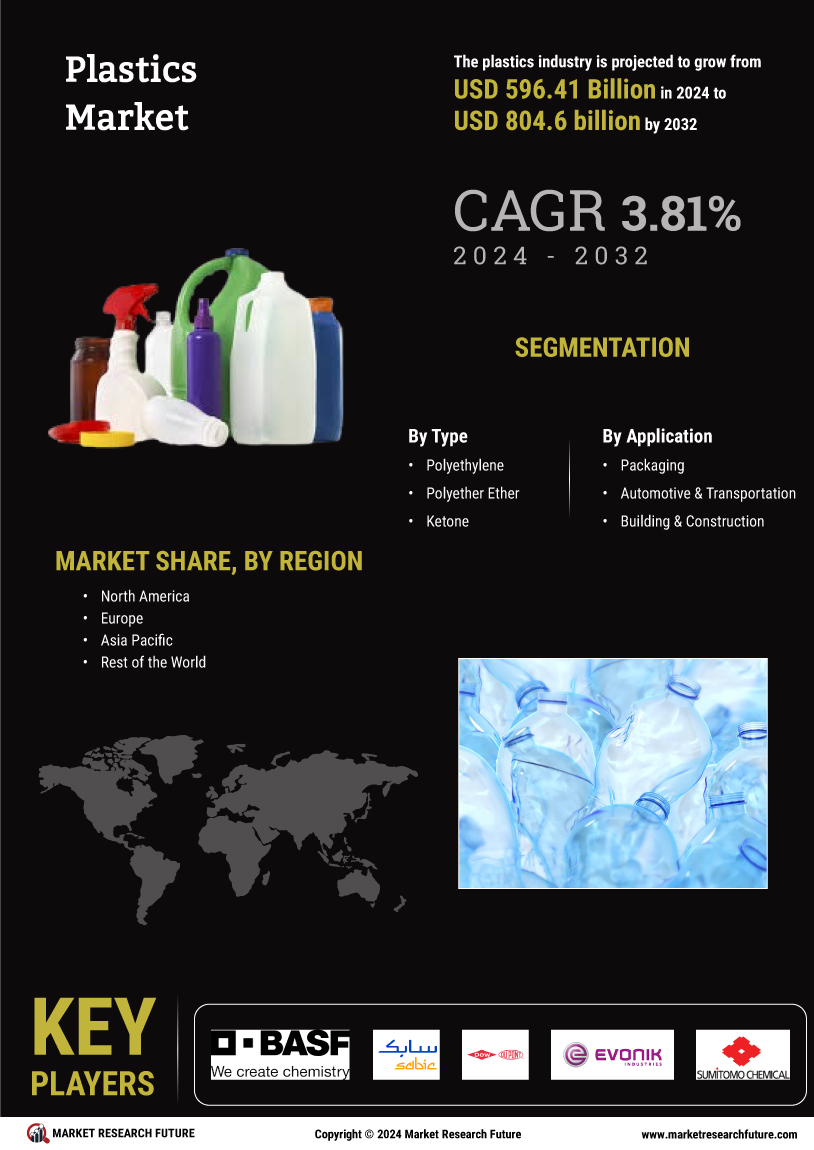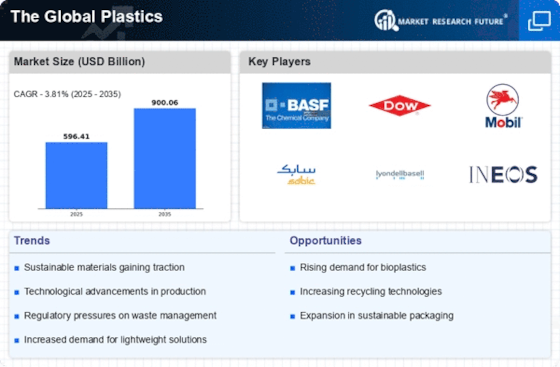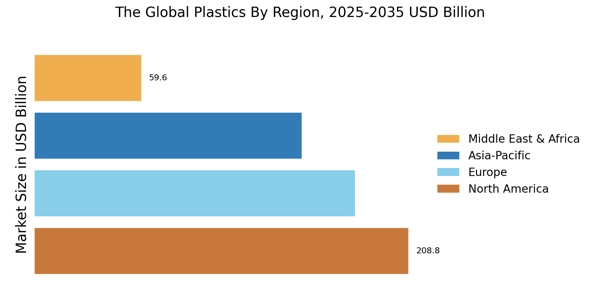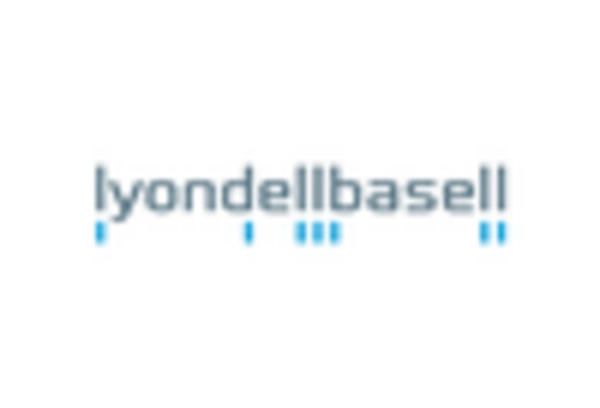Growth in Automotive Production
The automotive industry plays a crucial role in driving The Global Plastics Industry. With the ongoing shift towards electric vehicles and lightweight materials, the demand for plastics in automotive applications is expected to rise significantly. In 2025, it is estimated that plastics will constitute approximately 15% of the total weight of vehicles, contributing to improved fuel efficiency and reduced emissions. This trend is further supported by regulatory pressures aimed at enhancing vehicle performance and safety. Manufacturers are increasingly utilizing advanced polymers and composites to achieve these objectives, which not only enhance vehicle aesthetics but also improve functionality. As automotive production continues to expand, the reliance on innovative plastic solutions is likely to grow, thereby bolstering the overall market.
Expanding Applications in Healthcare
The expanding applications of plastics in the healthcare sector are significantly influencing The Global Plastics Industry. With the ongoing advancements in medical technology, the demand for high-performance plastic materials is on the rise. In 2025, it is estimated that the healthcare segment will account for approximately 10% of total plastics consumption. Plastics Market are increasingly utilized in medical devices, packaging, and disposable products due to their versatility, lightweight nature, and cost-effectiveness. Furthermore, the COVID-19 pandemic has heightened awareness of hygiene and safety, leading to an increased reliance on single-use plastic products in healthcare settings. As the industry continues to evolve, the integration of innovative plastic solutions is likely to enhance patient care and drive market growth.
Rising Demand for Packaging Solutions
The increasing demand for packaging solutions is a primary driver in The Global Plastics Industry. As consumer preferences shift towards convenience and sustainability, the need for innovative packaging materials has surged. In 2025, the packaging segment is projected to account for over 40% of the total plastics consumption. This trend is largely influenced by the food and beverage sector, which seeks to enhance product shelf life while minimizing environmental impact. Moreover, the rise of e-commerce has further accelerated the demand for protective packaging, leading to a notable increase in the production of lightweight and durable plastic materials. Consequently, manufacturers are investing in advanced technologies to develop eco-friendly packaging solutions, thereby aligning with sustainability goals and meeting consumer expectations.
Technological Innovations in Production Processes
Technological innovations in production processes are transforming The Global Plastics Industry. The advent of advanced manufacturing techniques, such as 3D printing and injection molding, has enabled companies to produce complex plastic components with greater efficiency and precision. In 2025, it is anticipated that the adoption of automation and smart manufacturing will enhance production capabilities, leading to reduced costs and improved product quality. Furthermore, these innovations facilitate the development of customized plastic solutions tailored to specific industry needs. As companies strive to remain competitive, investments in research and development are likely to increase, fostering a culture of continuous improvement and innovation within the industry. This dynamic environment is expected to drive growth and expand the market's potential.
Increasing Focus on Recycling and Circular Economy
The increasing focus on recycling and the circular economy is reshaping The Global Plastics Industry. As environmental concerns gain prominence, stakeholders are prioritizing sustainable practices that minimize plastic waste. In 2025, the global recycling rate for plastics is projected to reach 20%, reflecting a growing commitment to resource efficiency. This shift is prompting manufacturers to invest in technologies that facilitate the recycling of plastics and the development of biodegradable alternatives. Additionally, regulatory frameworks are being established to promote responsible plastic use and waste management. As a result, companies are exploring innovative ways to incorporate recycled materials into their production processes, thereby reducing reliance on virgin plastics and contributing to a more sustainable future.


















